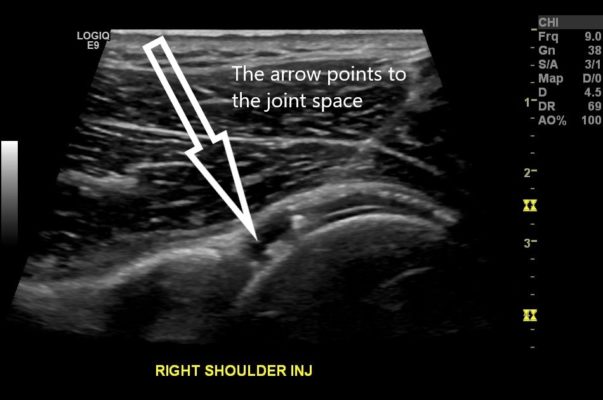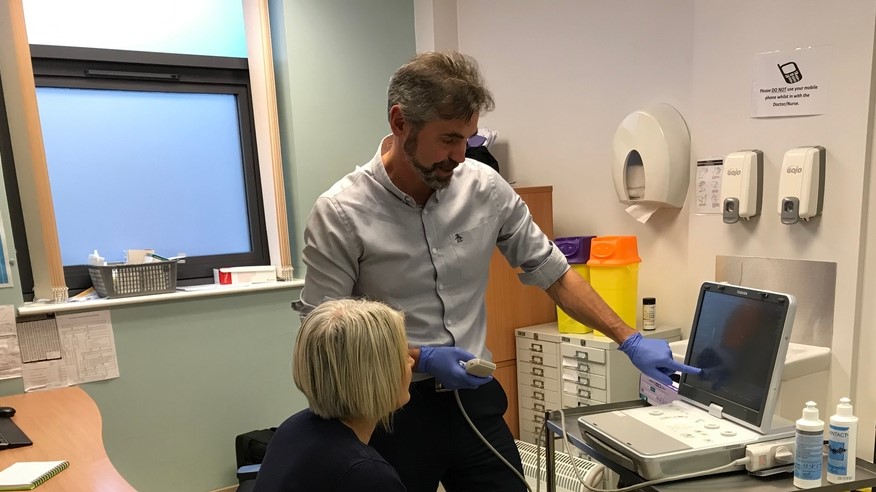Frozen shoulder is a common shoulder problem; it typically starts without any trauma and last for around 18 months. Quite often it affects the persons non dominant arm and after a period of several weeks it can cause the shoulder joint to loose its range of movement. Washing hair, fastening bras, putting on jumpers etc all become problematic.
Diagnosis is established by the presenting loss of movement and ultrasound scans can further ensure there is no tissue damage. A frozen shoulder on both ultrasound scan and x-ray will look normal.
Due to the high level of pain and limited movement, the condition has a significant impact on a persons life. Whilst treatments such as gentle exercises and soft tissue massage to the surrounding muscles can benefit, the main change in symptoms and movement is provided for by injection therapy.
Guided corticosteroid injections help reduce inflammation and in so doing decrease the pain experience. Hydro-dilitation or distention helps to stretch the shoulder joint capsule from the inside and can provide immediate improvement in joint range of movement.
It must be noted that all injections have to be administered under guidance. The joint space is relatively small and can be as deep as 6cm on some individuals. For Hydro-dilitation, the use of ultrasound scan enables a clear image of the expanding joint capsule.

Guided injections work well to suppress excessive inflammation. This can often improve night time rest, enabling better sleep.
To book an appointment with Injection Clinic and find out if you could benefit from a guided injection please ‘click here’.
